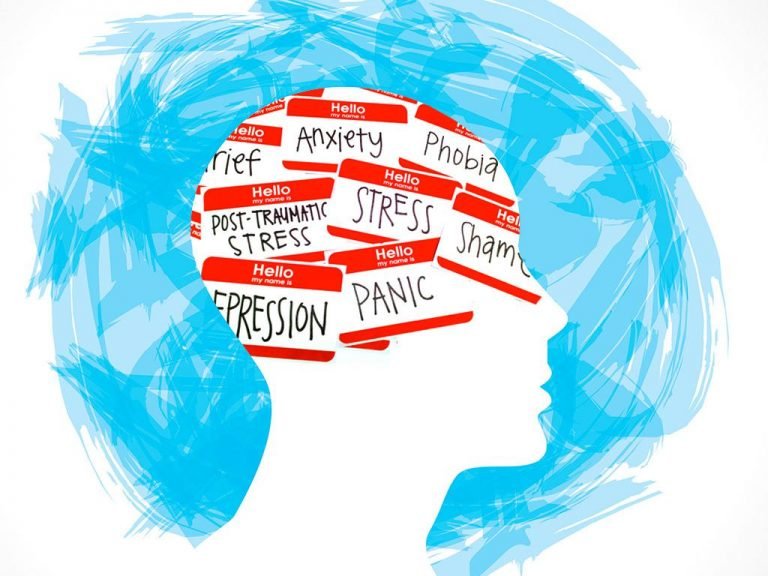Psychology and Injuries

Abstract:
Psychology and injuries play a crucial role in sports. The importance of biomechanics, physiotherapy, anatomy, physiology, and sports psychology has significantly increased. A player’s mindset can greatly influence their performance, as mental states like confidence and anxiety affect physical output. Research also focuses on strategies to mitigate the psychological impact of injuries, highlighting how mental factors can both affect performance and aid in recovery. Effective management of psychological aspects can enhance resilience and improve overall athletic performance.
Introduction of Psychology & Injuries:
Psychological Injury: Psychological injuries are stress-related emotional conditions that arise from real or perceived threats or trauma. They are characterized by mental harm, suffering, or dysfunction resulting from an event or failure to act.
Psychological Impact of Injuries: In sports and other areas, injuries can lead to significant psychological effects such as emotional distress, anxiety, or depression. Effective psychological strategies are crucial for coping and recovery.
Cognitive Appraisal: This involves assessing the injury and one’s coping mechanisms. It’s an essential component in understanding how individuals perceive and react to injuries.
Historical Context: The concept of psychological injury has evolved to include both the immediate psychological impact and long-term emotional and cognitive consequences.
The field of psychology is important for understanding and managing sports-related injuries. The psychological aspects that affect the occurrence of injuries and the effects of injuries on health, and the essential role of psychological support in the rehabilitation process is very important aspect in the sport. Athletes often face tough physical and mental challenges, where stress and anxiety increase, and low concentration increases the risk of injury. Competitive anxiety, alongside attitudes like over-confidence or fear of failure, and depression or phobia can exacerbate susceptibility to muscle strain and impairment. Both physical and psychological factors contribute to injury occurrence. An athlete’s perception of injury and emotional and physical responses significantly impact recovery. Injured players may experience depression and failure, which can interfere with the progress of their rehabilitation. Effective rehabilitation requires a combination of physical and mental techniques, such as goal-setting, visualization, relaxation methods, and cognitive-behavioral therapy to increase flexibility and adherence to recovery protocols. Sports psychologists play an important role in the successful return of athletes to competitive sports through counselling.
Key phrases or Words: Injuries, Psychological Injuries, Physical Injuries, Rehabilitation, Recovery
Definations:
Sports Psychology :
“Sports psychology is an area of specialization in psychology that is part of the so-called sports sciences. It is the scientific study of the psychological factors associated with participation and performance in sports, exercise, and other types of physical activity.”
Psychological Injury:
“Psychological injuries are stress-related emotional conditions resulting from real or imagined threats or injuries that may become the subjects of personal injury litigation, workers compensation claims, criminal injury compensation, other disability claims, or human rights tribunals.”

Objectives of Psychology and injuriess:

- To reducing the risk of injury by ensuring that players maintain optimal mental and physical condition through mental techniques.
- To stress management, mental resilience training, and focus
- To psychological support helps players cope with the emotional and psychological challenges of injury.
- To ensure athletes stick to their rehabilitation programs, psychological interventions can increase motivation and compliance with treatment protocols.
- To Helping athletes regain confidence in their physical abilities and overcome the fear of injury again for a successful return to competition.
- To Emphasizing both mental and physical recovery to ensure athletes are fully prepared to return to their sport, not just physically but also psychologically
Relation between Psychology and Injuries:
It explores the fascinating field of sports injury psychology and how mind and body are linked to sports performance and injury prevention. You should consider pursuing a career in the world of sports psychology to help athletes achieve their goals.

- Mind and body connection:
Sports injuries are not just a result of physical strain or trauma; they also have a psychological component. Our thoughts, emotions, and mental state can influence how we perform, recover, and even prevent injuries. There is plenty of research that suggests athletes with high levels of stress, anxiety, or low self-esteem may be more prone to injuries. This mind-body connection highlights the importance of addressing psychological factors alongside physical training to reduce the risk of injuries and is one of the factors as to why many professional sports organisations include the figure of a sport psychologist among their key personnel.
- Psychological factors influencing sports injuries:
Sports injuries and Mental factors affecting athletes are as follows:
- Stress and Anxiety:High levels of stress and anxiety can have a significant impact on an athlete’s performance and injury susceptibility. When athletes are stressed or anxious, their attention and focus may be compromised, leading to decreased awareness of their surroundings and an increased likelihood of accidents or overexertion.
- Personality Traits:An athlete’s personality traits can also play a role in their injury risk. Certain personality traits, such as perfectionism or a high need for achievement, can lead athletes to push themselves beyond their limits. While determination and drive are admirable qualities, they can sometimes result in overtraining, inadequate rest, and ultimately, injuries.
- Self-esteem and Confidence:Self-esteem and confidence are crucial psychological factors that affect an athlete’s performance and injury resilience. Athletes with low self-esteem may doubt their abilities, leading to hesitations, lack of assertiveness, and increased risk of injury. On the other hand, athletes with excessive confidence may underestimate the risks involved in certain movements or neglect proper technique, putting themselves at higher risk.
Causes and Recovery processes:

- Psychological Factors Contributing to Injuries: Psychological attributes such as competitive anxiety and stress can increase the likelihood of sports injuries. Athletes experiencing high levels of stress or anxiety may be more prone to injuries due to decreased concentration and increased muscle tension.
- Impact on Mental Health: Sustaining an injury can significantly affect an athlete’s mental health, leading to mood alterations, depression, and anxiety. The psychological impact of injuries can extend beyond sports, affecting personal well-being and life satisfaction.
- Role in Recovery: Psychological support is crucial in the recovery process. Athletes with positive mental attitudes and effective coping strategies tend to recover more quickly and return to their sport sooner. Sports psychologists play a vital role in helping injured athletes manage their emotions and stay motivated during rehabilitation.
4. Mind-Body Connection: Thoughts, emotions, and mental states significantly influence physical health and performance. Athletes with a positive mental state are less likely to experience injuries and more likely to recover swiftly if they do
Prevention and Rehabilitation through Psychology: Being able to recognise the psychological aspects of sports injuries opens up new avenues for prevention and rehabilitation strategies, which is why the figure of a sports psychologist is so important today within sports clubs and teams. Sports psychologists work closely with athletes to enhance their mental resilience, coping mechanisms, and overall well-being. The following is just an example of some strategies they employ:

Conclusion:

The interplay between psychology and sports injuries highlights the need for a holistic approach to injury prevention and recovery. Addressing psychological factors not only helps in preventing injuries but also facilitates more effective and comprehensive rehabilitation, ultimately aiding athletes in returning to their peak performance. Sports injuries are an unfortunate reality for athletes at all levels, from amateurs to professionals. Physical factors such as training techniques, conditioning, and biomechanics play an important role in preventing injuries, but while we often overlook the impact of psychology on sports injuries, researchers have tried to explain how psychology can play a role in the recovery process in preventing them.

For more information contact us
Follow me on Facebook


